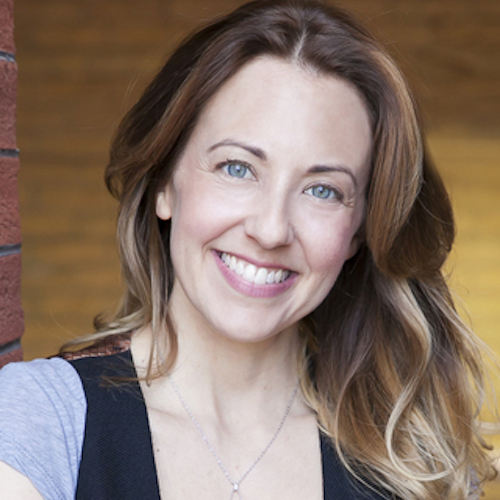
“It’s gonna be a McDonalds day. That’s just how it’s going to go down.”
That’s what I said after arriving back home at 5:30am, after being at Sick Kids Hospital all night with my five-year-old.
I surrender to the gods of the emotional eaters. In my mind, it was the only way I was going to make it through the day. My narrative went something like this, “You just went through something hard, exhausting, and you still have a full day of functioning between work and children. You need something good, something comforting, something with mass quantities of sugar and fat. Answer? McDonalds.”
The thought did occur to me to check us into a hotel rather than go home, which would mean we would be woken up by baby Lennon around 6:00am, and then a full household with preteens getting ready for school. I knew sleep wouldn’t really be an option when we returned home. But checking into a hotel at 5:30am, only to have to checkout at 11:00am didn’t really make much sense either. McDonalds it was.
Here’s the good news: my five-year-old, Keaton Radley, was fine. Obviously, this was the most important thing. It was a virus that induced an asthma attack which sent us to the hospital. Her oxygen was a bit low, so the very cute doctor (bonus) got her numbers back up and monitored her until the wee hours of the morn.
Knowing that she was okay, my adrenaline took a break, allowing my body to fall into exhaustion and look for ways to soothe myself. For me, it’s McDonalds, Baskin & Robbins, Liptons fettucine alfredo, Mr. Noodles, or a jar of Nutella (spoon optional).
Now that you know a bit about my coping strategies, I guess I should tell you a little more about me. I’m a Registered Psychotherapist in private practice, working with individuals and couples, in the areas of stress, anxiety, depression, relationships, communication, conflict resolution, fertility, and yes, emotional eating. I have a Master’s degree in Counselling and Organizational Psychology, and have been in practice for the past eighteen years.
I began my work in the area of emotional eating in 2006, when I worked for a weight loss camp in the US, focused on tackling obesity in adolescents. While I was prepared for a coaching program, which consisted of goal setting, cognitive-behavioural therapy, steps, structured meals as well as unstructured meals, what I learned there was that simply addressing the food itself would not result in sustainable change, so long as the clients remained burdened by the root causes that lay underneath the surface of their eating habits. What I learned was that turning to food was a way of coping with something else, something hard that was too difficult to manage on their own. Whether it was stress, anxiety, depression, bullying, violence or trauma, food was being used as a method of soothing and coping. What they needed was healthier and more effective ways to process and manage the underlying root struggles they were facing.
This is the basis of my work as a psychotherapist. Through cognitive-behavioural therapy, psychotherapy, emotion-focused therapy or EMDR, I work with clients on processing these underlying struggles they are facing, and find new, healthier and more sustainable ways to manage when they hit those bumps again.
Because this is the reality. Life is hard sometimes. You will hit bumps along the way. Eighty-percent of the population will experience a mental health struggle at some point. But if we have the support of a therapist, a trained, unbiased professional who is there to help you through that struggle, while at the same time, providing you with tools and skills to manage more own your own, there will be fewer bumps and you won’t hit those same bumps as hard.
Counselling is an opportunity to learn about ourselves. To learn about the ways in which we cope. To learn what lays beneath our coping strategies. And finally, to learn better ways to take care of our minds, our hearts and our souls.
The very first step is to begin to get curious with compassion and without judgment. Often when we make a mistake, a poor decision with food, we scold, we judge and we punish ourselves. “I can’t believe you did that. You’re so weak. Why can’t you say no? You failed again. You’re such a failure!” On and on we go. So unkind to ourselves. Is that kind of narrative motivating to make better decisions?
No. The only outcome is that we feel bad. And when we feel badly, we turn to food. The cycle continues. We need to be more kind to ourselves, more gentle and more curious. Only then can we begin to make better decisions.
So, did I get my Big Mac meal, with extra Mac sauce? Nope. I did not. I practiced curiosity with compassion, and realized that what lay beneath the food was pure and utter exhaustion and fear about my daughter’s health.
Once the root cause was identified, I could choose better solutions to deal with my sleep deprivation and fear. I remembered the reassuring words from doctor McDreamy that she was okay, and would only need a puffer for a couple of weeks.
Anxiety reduced, I put on pajamas, closed the blinds, cued up Netflix, and drifted off into a peaceful sleep.
We’d love to hear from you! Please send us your suggestions for future articles. And if you’re a writer, please see our writer’s submissions page for details.

